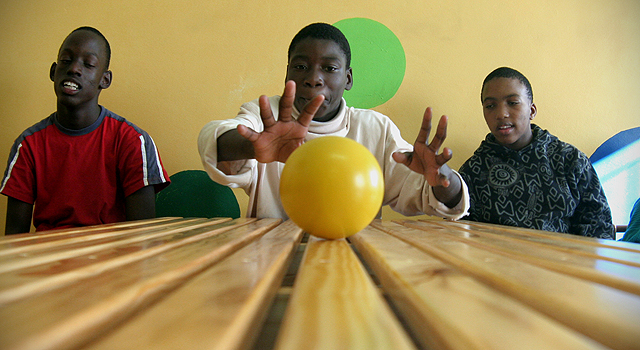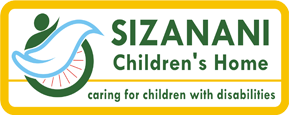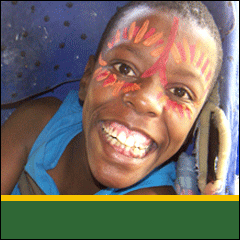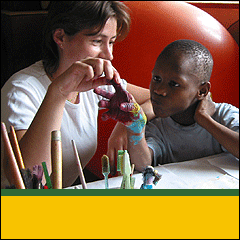The Home offers a developmental programme for its residents, which centers around the principles of Conductive Education. CE was developed by a Hungarian neurologist, dr. Andras Peto for children and adults with neurological disorders and is based on the premise that a motor disorder is a learning difficulty that can be – to some extent – successfully overcome.
It has a functional approach to teaching children and adults skills to help them gain increased independence in activities of daily living, such as bathing, dressing, feeding and general mobility. It also has a holistic approach, aiming to integrate one’s physical, intellectual, social, emotional and speech development, focusing on problem solving skills, motivation and initiation.
The CE programme of the Home was established with the aim of involving childcare workers in the holistic development of the children, instead of purely relying on a few professional therapists, who could not have a considerable impact on the development of the large number of children in the Home. After all, it is the childcare workers who spend the most time with the children, assisting them in activities of daily living, and this time allows them the opportunity to teach the children new skills that will increase their independence.
Besides the CE programme, we strive to offer a wide range of therapeutic interventions, as the functional abilities and needs of our children vary greatly. Our volunteer initiative has seen the Home benefit from the services of a number of overseas professionals, including physiotherapists, occupational therapists, and psycho-motor therapists. The average length of stay for these volunteers is six months, during which time they work on a one-on-one or small group basis directly with the children.
Volunteers have also established a vocational programme for our more able young adults, so that they can learn essential skills for work and the fundamentals of money; it has also seen an increase in their levels of self-esteem and independence. Besides regular placements in our kitchen and laundry, we have also built a small vegetable garden, which is maintained by our residents and childcare workers.
We have also introduced two new programmes recently, with particular emphasis on the needs of the children with profound disabilities. The Multi-sensory Story Telling programme was established by a Dutch professional, who developed individual stories for several children and trained our childcare workers in the implementation of the programme. These stories aim to engage children involving all of their senses and provide them with one-on-one special attention from their caregivers. Our childcare workers have also been trained in the basics of infant massage and they integrate this technique into the children’s daily therapeutic programme.




